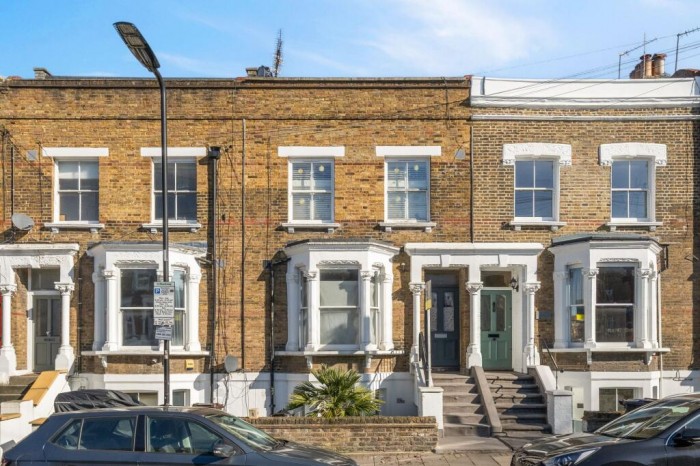Zero Deposit Schemes
Posted in April 2024
A Zero Deposit scheme is an alternative to a traditional tenancy deposit. It provides the same level of financial protection and security to landlords, whilst reducing the upfront costs to tenants. If a landlord offers the choice of a Zero Deposit, tenants can choose between this option or the traditional cash deposit. Zero Deposit still offers cover up to the value of six weeks' rent whereas under the Tenant Fee Act 2019, most tenant deposits will be restricted to the value of five weeks' rent only. However, there have been a number of concerns raised about the use of these schemes.

What is a Zero Deposit scheme?
A Zero Deposit scheme is a way of renting a property without paying a deposit of five weeks’ rent upfront. A new tenant can pay a non-refundable fee instead, that is equivalent to one weeks’ rent.
For a landlord, there will be no fees and not using a Zero Deposit scheme can mean less admin is required as a Tenancy Deposit Protection scheme is not necessary.
However, with this kind of scheme, even without any landlord claims, tenants will not get any of the money they've paid back.
Here is an outline of how a Zero Deposit scheme works:-
When new tenants move into a privately rented property, the normal procedure requires a deposit equating to five weeks’ rent, to be paid to the landlord.
The deposit will be returned to them once they move out and the property has not suffered any damage. However, if that is not the case, the landlord can take funds from the deposit for necessary repairs.
In line with the Tenant Fees Act in 2019, the deposit amount is capped at five weeks’ rent for properties where the total annual rent is less than £50,000, or six weeks’ rent if the total annual rent is higher than this amount.
Whilst the tenant lives in the property, the landlord is required to keep the deposit in a Protected Tenancy Deposit scheme.
One of the reasons Zero Deposit schemes were set up, is to give renters an alternative option. For some tenants, the required deposit is a lot of money to provide on top of their first month’s rent.
Also known as No Deposit schemes, this allows renters to pay less money upfront and instead enter an insurance agreement with their private landlord.
The terms of the agreement make the tenant liable for the cash equivalent of between six and twelve weeks’ rent.
The landlord is able to claim for any damage caused to the property, and the scheme will pay them and then subsequently bill the tenant.
However, there have been some concerns raised by housing professionals about Zero Deposit schemes.
The Competition and Markets Authority (CMA) is currently investigating registered concerns about whether tenants using Zero Deposit schemes fully understand what they are liable for, in addition to how some letting agents are promoting these schemes.
Therefore, for any tenant who is thinking of using a Zero Deposit scheme, it is highly advisable that you carefully read the agreement to understand what your financial liabilities may be.
How it works
If you’re considering a Zero Deposit scheme, your chosen estate agent must be registered with a scheme for this to proceed.
The agent will also need to ensure that the landlord of the property agrees to using a Zero Deposit scheme.
At the end of the tenancy, the landlord can raise a claim for any damage to the property.
The scheme will pay the landlord and then bill the tenants, which is something that can be disputed.
If a situation occurs where the tenants don’t pay what is owed straight away, Zero Deposit schemes can use a debt collection agency to get money from them, which can have an adverse effect on their credit rating.
Thereby, whilst tenants can avoid the necessity of paying a large deposit upfront at the start of their tenancy, they also run the risk of facing a much larger bill when they move out.
Are any fees payable?
Yes. Although the initial costs are lower than a traditional tenancy deposit, tenants still pay fees.
To enter a Zero Deposit scheme, tenants must make an initial payment, typically equivalent to one week’s rent, plus there may be set-up costs and administrative fees.
There are no fees for the landlord, and using a Zero Deposit scheme can mean less administration for them, as they don’t need to set up a Tenancy Deposit Protection scheme.
But it’s vital to stress that with Zero Deposit schemes, even if the landlord makes no claims, tenants will not get any of the money they’ve already paid returned to them.
Who qualifies for a Zero Deposit scheme?
In the first instance, a tenant should speak to their estate agent to find out if they are eligible to join such a scheme.
But before doing so, they need to go through a referencing process. This is where the provider checks details about the tenant, including whether they’ll be able to afford using the scheme. In addition, they will remain wholly responsible for any financial loss or damage covered by their Shorthold Tenancy agreement.
In instances where a tenant does not pass the referencing stage, they can ask someone to be their guarantor, who will ultimately be liable for any payments the tenant does not make and therefore owes.
Guarantors will also be subject to passing the provider’s referencing checks.
Pros and Cons
Pros:-
Initial Upfront Costs are low: The upfront costs for Zero Deposit schemes are far lower than a typical tenancy deposit.
Less administration involved: A Zero Deposit scheme can require less administration for landlords, which in theory could speed up the moving-in process.
Cons:-
Loss of Money: Tenants will not get the money back that they pay into the Zero Deposit scheme. This applies even if the property is left in perfect condition.
Potential bills when moving out: If the landlord raises a claim about any damage when tenants move out, they will need to find additional money to cover the costs.
Membership cost: This can increase on a yearly basis
Settling of Disputes
In some instances, the provider could charge tenants a fee for raising a dispute against a landlord’s claim.
It is highly advisable that the provider’s dispute policy is thoroughly investigated before entering a Zero Deposit scheme.
Summary
Taking into consideration all the available information relating to Zero Deposit schemes, it is David Andrew’s view as a company, that they are not in the best interests of either landlords or tenants, so we would not recommend or endorse them. Furthermore, we believe it is a lack of availability rather than affordability that is an issue for our clientele.
In addition, we do not agree with certain letting agencies earning up to 30% commission for each person they refer, or overlook the fact that the fee payable by tenants is non-refundable, whilst the membership costs tend to rise each year.
Latest posts
Free property valuation
With three local offices we have unrivalled market knowledge. A senior member of the David Andrew team will come to your property to provide an accurate sales valuation or rental valuation and offer comparable properties we have sold in order to justify our valuation and to show how we can achieve you the best possible price.
Register with us
Register today to receive instant alerts when we add properties that match your requirements.


